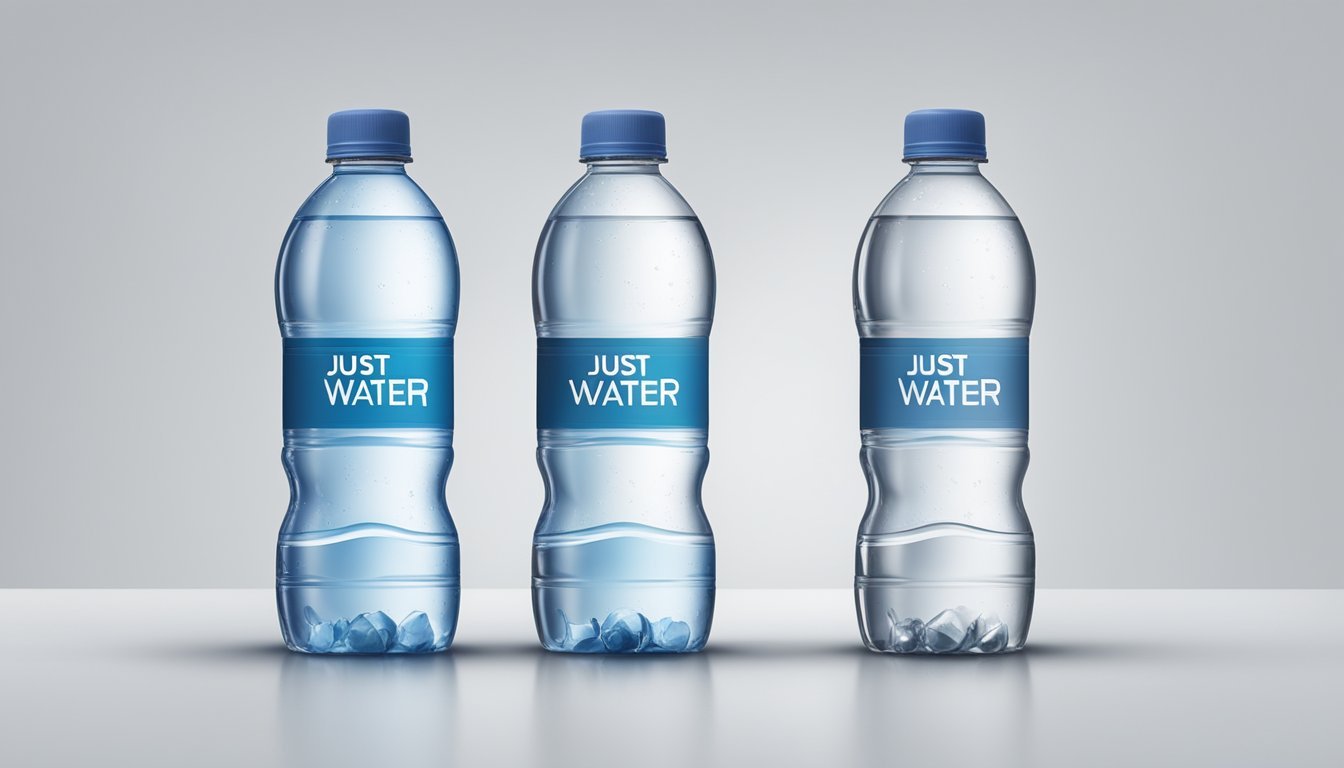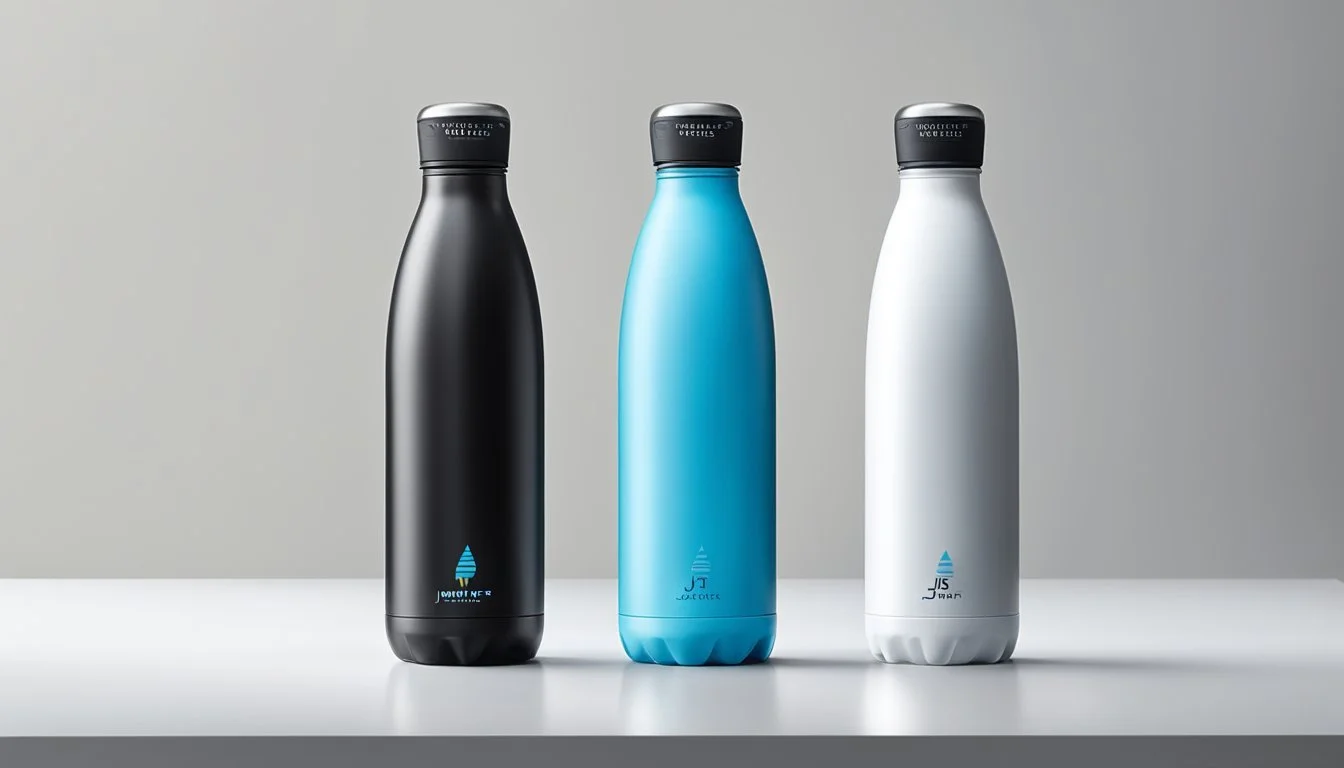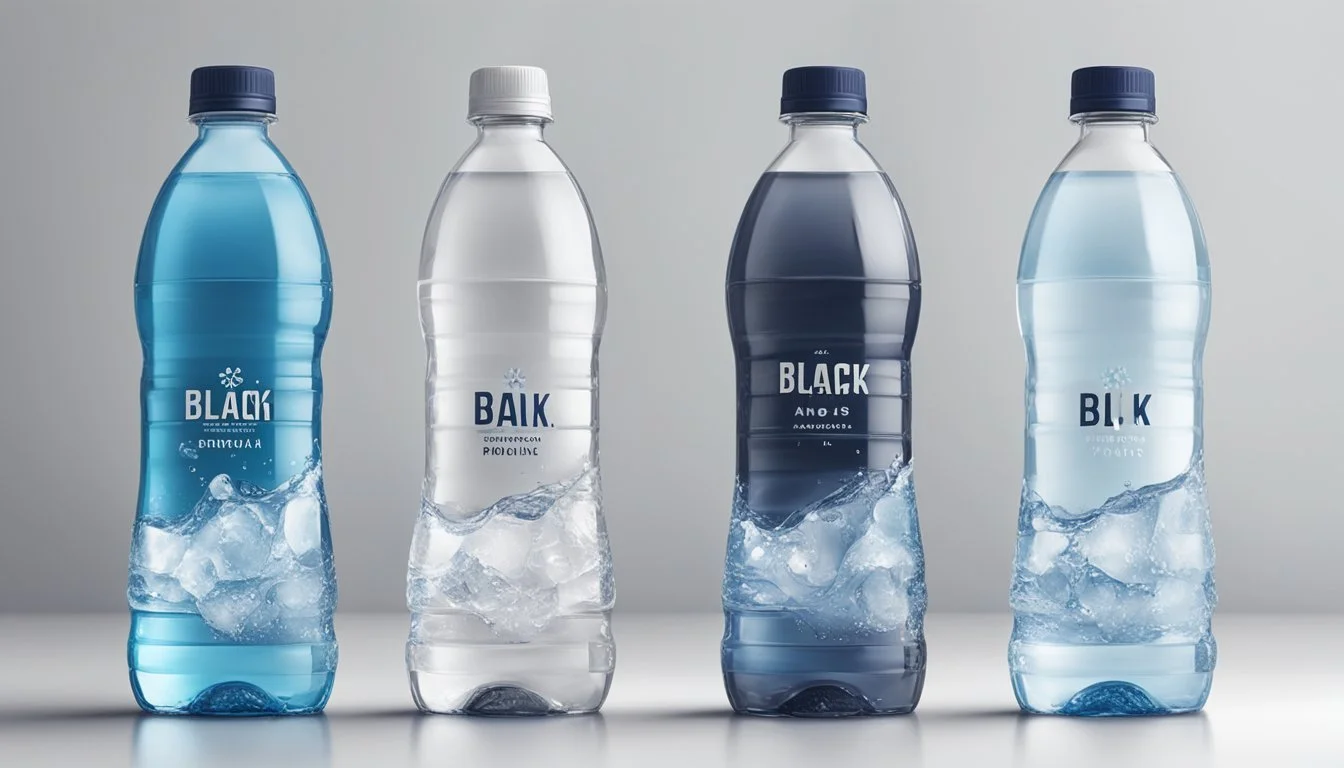Just Water vs. Blk
Comparing Bottled Water Brands
Choosing the right bottled water can be tricky, especially with unique options like Just Water and Blk Water. Both brands offer something distinct, with Just Water focusing on sustainability and eco-friendly packaging, and Blk Water standing out for its striking black color infused with fulvic aci
While Just Water prides itself on a majority paper-based design with a bio-plastic cap, aiming to reduce plastic waste, Blk Water claims potential health benefits due to its fulvic trace minerals. For those prioritizing health benefits derived from added minerals, Blk Water may be the better choice, whereas environmentally-conscious consumers might lean toward Just Water.
Engaging with these two brands highlights a broader conversation about what consumers value more in their hydration choices: health-enhancing properties or environmental impact. Which will you choose? The deeper dive into both waters promises to provide the insights you need.
Overview of Just Water and Blk. Water
Just Water and Blk. Water are two bottled water brands with distinct appearances and ingredient profiles. Just Water focuses on eco-friendly packaging and sustainability, while Blk. Water is known for its unique black color derived from fulvic trace minerals.
Brand History and Philosophy
Just Water was founded by Jaden Smith in 2015 with a mission to reduce plastic waste. The brand emphasizes sustainability, using 82% renewable resources in its packaging. This includes paper-based cartons and plant-based plastic caps, aiming for a minimal environmental footprint.
Blk. Water launched in 2018 and immediately stood out due to its black color. The brand promotes the inclusion of fulvic trace minerals, which are said to offer health benefits. Blk. Water is marketed as a functional beverage, catering to those interested in more than just hydration.
Product Range and Varieties
Just Water offers several varieties, primarily differentiated by flavor and packaging size. Their product line includes:
Original: Pure spring water.
Flavored: Options such as Lemon, Berry, and Mint.
Packaging Sizes: Available in different volumes, typically 500ml and 330ml.
Blk. Water also provides a range of options, focusing on the unique attributes of their black-colored water. Key offerings include:
Original: The standard black water infused with fulvic minerals.
Flavored: Variants like Black Cherry and Black Lemonade.
Functional Beverages: Products like Blk + Focus and Blk + Energy for targeted benefits.
Both brands appeal to different consumer priorities, with Just Water highlighting eco-friendliness and Blk. Water focusing on unique ingredients and potential health advantages.
Source and Production
Just Water and Blk both source and produce their products differently, which affects their quality, taste, and environmental impact.
Water Source and Collection
Just Water sources its water from a spring located in Glen Falls, New York. The company emphasizes sustainability by ensuring the spring is replenished naturally. This method guarantees a continuous water supply without depleting the natural resource.
Blk, on the other hand, uses water sourced from artesian springs. The artesian process involves collecting water from confined aquifers, which are protected by impermeable rock layers. This method ensures that the water is free from many surface contaminants. Artesian springs are known for producing mineral-rich water, which can add unique flavors and benefits.
Treatment and Bottling Process
Just Water undergoes a rigorous treatment process in a dedicated treatment plant. This process includes multiple stages such as filtration, UV purification, and ozonation. The aim is to remove any potential contaminants while preserving the natural minerals. Just Water is bottled in eco-friendly cartons made up of 82% renewable resources, significantly reducing plastic waste.
Blk also follows a strict treatment regimen, including microfiltration and UV disinfection. Their bottling process involves adding fulvic acid, a natural compound that derives from plant matter. This gives Blk its distinctive dark color and is claimed to enhance nutrient absorption. Blk is bottled in BPA-free plastic containers, focusing on consumer safety.
Utilizing different sources and processes, both brands ensure unique qualities in their respective products.
Health and Nutritional Aspects
Just Water and Blk water differ in their contents and potential health benefits. This section covers their mineral content, potential additives, and impact on hydration and body functions.
Mineral Content and Health Benefits
Just Water offers a balanced blend of minerals such as calcium and magnesium, essential for bone health and muscle function. The alkaline nature of Just Water may also help neutralize acids in the body, supporting overall well-being.
Blk Water, notable for its fulvic acid content, aims to enhance nutrient absorption and immune system function. This element, alongside other trace minerals, may support gut health and aid in detoxification. Its unique composition sets it apart, potentially making it beneficial for those seeking enhanced nutritional support.
Additives and Purity
Just Water prides itself on purity, using sustainably sourced spring water with minimal processing. This ensures that the water is free from harmful additives and contaminants, making it a straightforward choice for those prioritizing natural hydration.
Blk Water contains fulvic acid, which gives it its distinctive dark color. This additive, while unique, is naturally occurring and linked to potential health benefits such as improved nutrient uptake. However, some may prefer simpler options without such specific enhancements.
Hydration and Body Impact
Both Just Water and Blk Water aim to provide efficient hydration. Just Water's electrolyte content helps maintain fluid balance, supporting everyday bodily functions and athletic performance.
Blk Water, with its nutrient-rich profile, not only hydrates but also aims to replenish minerals lost during rigorous activities. The fulvic acid's role in enhancing nutrient transport can be advantageous for active individuals, potentially offering more comprehensive hydration benefits.
Overall, whether one chooses Just Water for its simplicity or Blk Water for its enriched profile depends on individual health goals and preferences.
Taste and Water Quality
When comparing Just Water and Blk Water, taste and water quality are essential factors. This section will explore the differences between tap and bottled water profiles, insights from blind taste tests, and an assessment of purity and freshness.
Profile of Tap Water vs. Bottled Water
Tap water often contains essential minerals that affect taste and quality, such as calcium and magnesium. These minerals can add a subtle flavor, which some consumers might prefer. However, the taste can vary depending on the local water supply and treatment methods.
Bottled water, such as Just Water and Blk Water, typically undergoes additional filtration processes. Just Water is known for its clean, fresh taste with balanced mineral content, offering a smooth mouthfeel. On the other hand, Blk Water contains fulvic minerals, which give it a unique profile, though its taste remains relatively neutral.
Blind Taste Test Analyses
Blind taste tests are an objective method to evaluate water taste. In such tests, Just Water has scored high for its crispness and refreshing qualities. Participants often describe its flavor as clean and slightly sweet, making it a popular choice among bottled water brands.
Blk Water, with its distinct appearance due to fulvic minerals, presents a different tasting experience. Despite its dark color, blind taste tests often reveal that it has a surprisingly neutral flavor. This neutrality makes it appealing to those who dislike the taste of regular tap water enriched with additional minerals.
Assessment of Purity and Freshness
Purity and freshness are critical for both Just Water and Blk Water. Just Water is sourced from fresh spring water, which undergoes extensive filtration to remove impurities while preserving essential minerals. This meticulous process results in high-quality water that's both pure and fresh.
Blk Water stands out due to the inclusion of fulvic minerals, touted for their potential health benefits. Despite its dark hue, Blk Water maintains a high level of purity, as it undergoes rigorous filtration. The addition of minerals does not compromise its cleanliness, ensuring consumers still receive fresh and pure water.
Safety and Regulations
Ensuring that bottled water is safe to drink involves strict compliance with regulatory standards and rigorous testing for contaminants and chemicals.
Standards and Compliance
Both Just Water and Blk are subject to regulations that ensure their products are safe for consumption. The U.S. Environmental Protection Agency (EPA) regulates public drinking water, while the Food and Drug Administration (FDA) oversees bottled water.
The Safe Drinking Water Act (SDWA) sets stringent standards for public water systems, which include microbiological, physical, chemical, and radiological criteria. Bottled water must comply with similar criteria under the FDA's regulations, which are based on EPA standards.
Comparatively, both Just Water and Blk must meet these regulatory requirements to be sold in the market, ensuring they provide safe drinking water.
Testing for Contaminants and Chemicals
Just Water and Blk must undergo frequent testing for contaminants, such as bacteria, heavy metals, and other harmful chemicals. Testing aims to detect substances like lead, arsenic, and microplastics. Regular quality checks ensure adherence to safety standards.
Additionally, bottled water brands test for residual disinfectants and byproducts, ensuring levels remain within acceptable limits.
Microplastic presence in bottled water has been a concern. Studies, including one by Orb Media, showed that a significant percentage of bottled water contains microplastic particles. Brands must continuously test and improve their processes to minimize these contaminants.
By following rigorous testing protocols, Just Water and Blk aim to provide products that meet safety standards set by regulatory bodies.
Environmental Considerations
When examining Just Water and Blk, it is important to evaluate their environmental impact through their packaging and sustainability practices, as well as their carbon footprint and recycling efforts.
Packaging and Sustainability
Just Water employs a majority paper-based design with a bio-plastic cap. The packaging is 74% paper, 1% aluminum, and 25% plastic film, making it more sustainable compared to traditional plastic bottles. This blend aims to reduce reliance on fossil fuels and minimize environmental harm.
Blk, on the other hand, uses conventional plastic bottles. While still recyclable, the environmental impact is greater when considering the production and disposal of plastic. The Environmental Protection Agency (EPA) notes that plastic bottles significantly contribute to landfills.
Sustainable packaging is crucial in decreasing the toll on natural resources. Choosing Just Water over Blk can help support eco-friendly practices and reduce waste.
Carbon Footprint and Recycling
The carbon footprint of Just Water is comparatively lower due to its focus on renewable materials and reduced plastic use. The manufacturing process generates fewer greenhouse gases, contributing to lesser climate change impacts. By using paper and bio-plastics, they reinforce less energy-intensive recycling processes.
Blk’s reliance on plastic increases its carbon footprint. Producing, transporting, and recycling plastic bottles result in higher emissions. Although recycling mitigates some environmental damage, plastic’s persistence and lifecycle still carry significant energy costs.
Promoting the use of reusable water bottles over single-use Blk bottles can further diminish environmental impacts. Efforts to recycle more can lessen the burden on landfills, but it’s essential to support products with lower inherent carbon footprints like Just Water.
Price and Consumer Choice
Comparing Just Water and Blk involves examining their prices and how consumers choose them. Factors like cost, trends, and behaviors shape the purchasing decisions of bottled water.
Cost Comparison
Just Water is typically priced around $1.99 for a 16.9 oz bottle. It focuses on affordability while promoting sustainability, using eco-friendly packaging.
Blk, on the other hand, can cost between $2.50 to $3.00 for the same size. The higher cost is due to its unique selling point: fulvic minerals, which give it a distinct black color.
Brand Price (16.9 oz) Unique Selling Point Just Water $1.99 Sustainable packaging Blk $2.50 - $3.00 Fulvic mineral content
Consumers often weigh these costs against perceived benefits. Those looking for budget-friendly and sustainable options might prefer Just Water. Those intrigued by health trends and unique products could lean towards Blk despite the higher price.
Market Trends and Consumer Behaviors
Bottled water consumption has grown, driven by convenience and health perceptions. Many consumers are buying brands with clear, environmentally friendly practices, like Just Water.
Blk appeals to a niche market interested in premium and unconventional products. It has a strong social media presence, attracting consumers looking for innovative and aesthetically unique items.
Bottled water brands compete by highlighting unique features. While Just Water emphasizes affordability and sustainability, Blk leverages its distinctive appearance and added minerals for appeal. Consumer choices reflect broader trends, balancing cost with interest in new, varied experiences.
Conclusion
When comparing Just Water and Blk Water, several key distinctions emerge.
Packaging:
Just Water uses primarily paper-based packaging with a bio-plastic cap.
Blk Water opts for traditional plastic bottles.
Source and Content:
Just Water is sourced from Glens Falls, NY, and focuses on sustainability.
Blk Water features fulvic minerals giving it a distinctive black color.
Environmental Impact:
Just Water emphasizes eco-friendliness with its renewable packaging.
Blk Water contains minerals but uses more conventional packaging materials.
Taste and Consumer Appeal:
Just Water offers a crisp, clean taste.
Blk Water has a unique appearance and mineral content that attracts a niche market.
Price: Prices for both can vary, but generally, Just Water may be priced slightly higher due to its sustainable packaging.
Both waters offer unique benefits. The choice depends on individual preferences for sustainability, taste, and health benefits.
More About Just Water
Core Hydration vs Just Water: Which Bottled Water is Better?
Icelandic Glacial vs Just Water: Which Bottled Water is Better?
Just Water vs Aqua Carpatica: Which Bottled Water is Better?
Just Water vs Cascade Mountain: Which Bottled Water is Better?
Just Water vs Crystal Geyser: Which Bottled Water is Better?
Just Water vs Hawaii Volcanic: Which Bottled Water is Better?
Just Water vs Hawaiian Springs: Which Bottled Water is Better?
Just Water vs Kirkland Signature: Which Bottled Water is Better?
Just Water vs Mountain Valley Spring Water: Which Bottled Water is Better?
Just Water vs Nestle Pure Life: Which Bottled Water is Better?
Just Water vs Richard's Rainwater: Which Bottled Water is Better?
Just Water vs San Pellegrino: Which Bottled Water is Better?
Just Water vs Solan de Cabras: Which Bottled Water is Better?
Just Water vs Talking Rain AQA: Which Bottled Water is Better?
Just Water vs Whole Foods 365: Which Bottled Water is Better?
Just Water vs Whole Foods Italian Still Mineral water: Which Bottled Water is Better?






